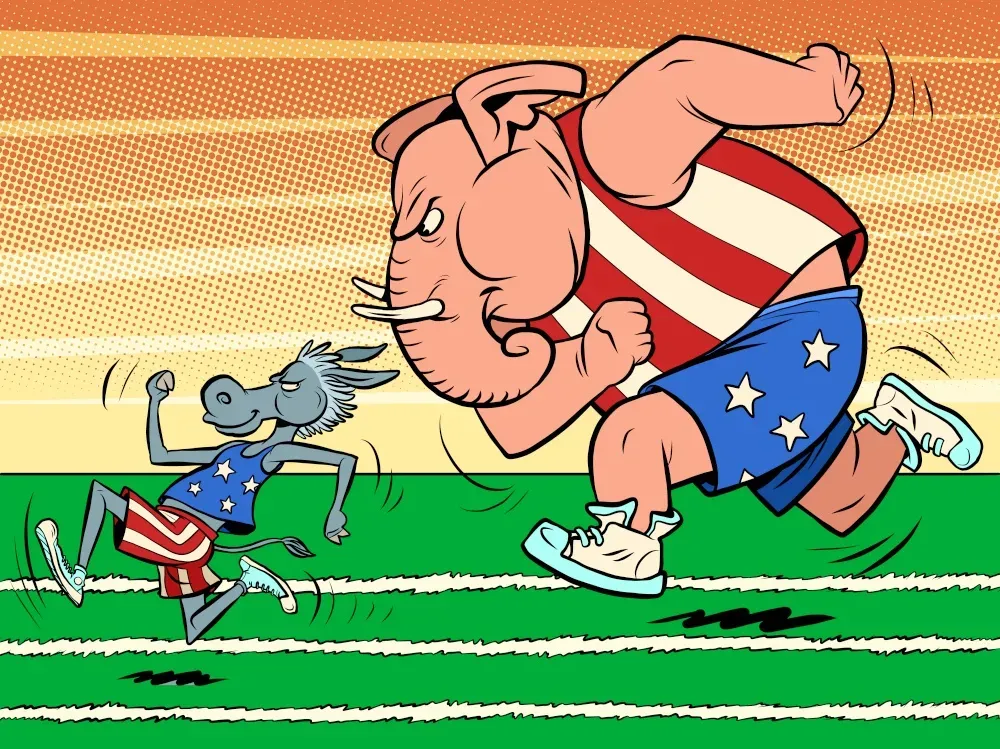By George Ford Smith, The Mises Institute | March 26, 2024
In the early evening of October 8, 1882, one of the richest men in the world was about to eat his supper in his private dining car. The train to which he was attached had just arrived in Chicago from Michigan City, Indiana, but before he could pick up his fork, a brash young reporter, freelancer Clarence Dresser, burst into his car asking for an interview. He wanted to know the railroad’s guidelines for establishing freight rates.
“I’ll talk to you after supper,” William Henry Vanderbilt told him.
“But I have a deadline to meet,” Dresser persisted, “and the public has a right to know.”
“The public be damned! Get out!”
In this one unfortunate outburst Dresser already had more than he could ever have dreamed of getting.
Dresser tried to sell the encounter to the Chicago Daily News, but the night editor “was not interested in words provoked from a man whose patience and privacy has been assaulted.” Dresser then rewrote the story and sold it to the Chicago Tribune. Here is what they printed:
“Does your limited express [between New York and Chicago] pay?” Dresser asked.
“No, not a bit of it. We only run it because we are forced to do so by the action of the Pennsylvania Road. It doesn’t pay expenses. We would abandon it if it was not for our competitor keeping its train on.”
“But don’t you run it for the public benefit?”
“The public be damned. What does the public care for the railroads except to get as much out of them for as small a consideration as possible. I don’t take any stock in this silly nonsense about working for anybody’s good but our own, because we are not. When we make a move we do it because it is our interest to do so, not because we expect to do somebody else some good. Of course we like to do everything possible for the benefit of humanity in general, but when we do we first see that we are benefiting ourselves.”
There are many variations of the story, but in all of them William Henry is credited with the impolitic exclamation that has hung over Western capitalism like a sword of Damocles ever since. Before his death in 1885, Vanderbilt’s estimated worth was $194 million, roughly equal to $6.2 billion today.
Adam Smith said something similar but not nearly as incriminating in his 1776 magnum opus The Wealth of Nations when he famously wrote,
It is not from the benevolence of the butcher, the brewer, or the baker that we expect our dinner, but from their regard to their own interest. We address ourselves, not to their humanity, but to their self-love, and never talk to them of our own necessities, but of their advantages.
Vanderbilt’s phrase, “When we make a move we do it because it is our interest to do so,” is an instance of the reality Smith describes as “their regard to their own interest.”
It is self-interest—selfishness—that drives the market, not self-sacrifice. But it’s selfishness as a moral concept, not the emotions—fear and greed—that often drive the stock market.
If we imagine the butcher, brewer, or baker motivated by the simple desire to feed people, we would all starve if they ignored the rigors of accounting. If a business, no matter how necessary to human survival, cannot earn a profit it will either be sustained by other means or cease to exist. And since “other means” tend to rely eventually on someone else’s profits, if only in the form of economic prudence (savings), we arrive at the truth of Smith’s statement about “their self-love,” of their need to make a profit.
A current headline example of the need for profitability is the decision of US automakers to delay or halt production of electric vehicles (EVs). Ford’s projected loss on EV spending for 2023 was $4 billion. General Motors and Tesla are also struggling amid what was “supposed to be the dawn of EVs in America,” per Joe Biden’s decree. Meanwhile, the antimarket government is “moving ahead with its plan to install half a million electric vehicle charging stations across the country.”
EVs are just the latest instance of government profligacy. While there are some who’ve argued the Apollo moon program was faked, there is no faking its cost to Americans who work for a living: “The United States spent $25.8 billion on Project Apollo between 1960 and 1973, or approximately $257 billion when adjusted for inflation to 2020 dollars. Adding Project Gemini and the robotic lunar program, both of which enabled Apollo, the U.S. spent a total of $28 billion ($280 billion adjusted).”
Wherever the government sages came from they’ve been at it since the dawn of legalized counterfeiting. Government can always sell its debt because of its power to shake down taxpayers. And in exchange for its debt, it acquires buying power. Install a flurry of charging stations? No problem when you’ve got a counterfeiting racket going in the back room. Does the demand exist? Doesn’t matter. Give General Motors or Ford a printing press and they could be spinning EVs until the economic roof collapses from the nothingness behind their money. Unlike government utopians who fund their dreams with fake money and coercive monopolies, businesses are tied to something called consumer demand. They actually have to please the public—while making a real profit.
I submit “The public be damned!” is a four-word summation of government policy.
George Ford Smith is a former mainframe and PC programmer and technology instructor, the author of eight books including a novel about a renegade Fed chairman (Flight of the Barbarous Relic) and a nonfiction book on how money became an instrument of theft (The Jolly Roger Dollar).
Original article link







